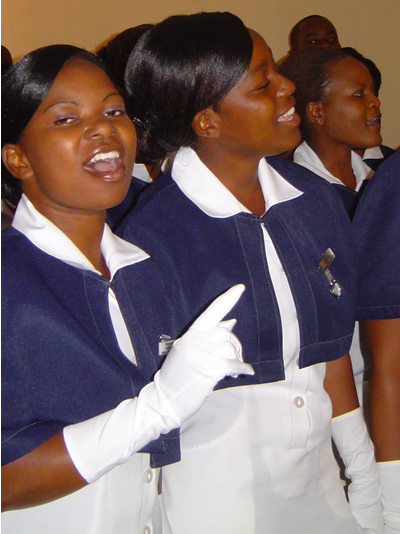Nurses Council of Zimbabwe benefits from support
Wednesday, July 6th, 2011 by Elizabeth NyamudaFor an effective and efficient health service delivery to exist in any country, the human resources in the health sector need to be trained, skilled and motivated. In Zimbabwe in our endeavour to achieve the Millennium Development Goals, proper human resource management has to be done in the health sector for us to reduce child mortality, improve maternal health and combat HIV/AIDS, malaria and other diseases.
The U.S. Center for Disease Control and Prevention (CDC-Zimbabwe), through the President’s Emergency Fund for AIDS Relief (PEPFAR) has made a donation of IT equipment and a generator to the Nurses Council of Zimbabwe to help them implement a national human resources information system (HRIS).
Speaking at the official handover ceremony, US Ambassador to Zimbabwe, Charles Ray, pointed out the importance of an HRIS, “A strong human resources information system helps health care leaders answer the key policy questions affecting health service, such as workforce planning, training, qualifications, service delivery and retention”. The Minister of Health and Child Welfare, Dr Henry Madzorera, added that an electronic information system would enable the regulation of nurses in the health sector.
Over the years the brain drain has adversely impacted Zimbabwe, and the health sector is one of the most affected sectors. Zimbabwe has lost professional nurses and doctors in search for greener pastures in neighbouring countries and abroad.
The International Organisation of Migration (IOM) under the programme, Temporary Return of Health Professionals to Zimbabwe, aim to bring back health professionals to Zimbabwe to work in the health sector in their area of specialization or as lecturers at local universities. Such projects are good initiatives as they enable knowledge sharing and address existing gaps within the health sector. However, for such programmes to function to their full potential and realise their set goals and objectives, good information systems are required. Thus the setting up of an HRIS will be a valuable collaboration between the Ministry of Health and civil society.













